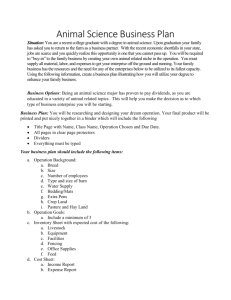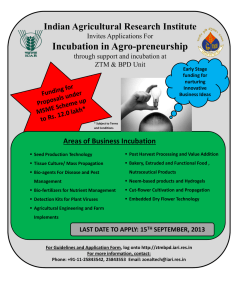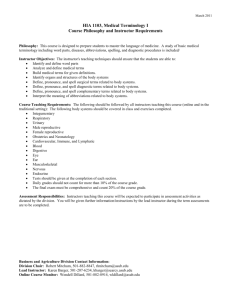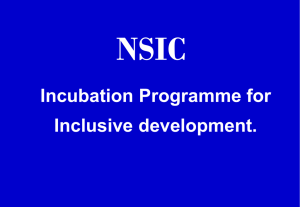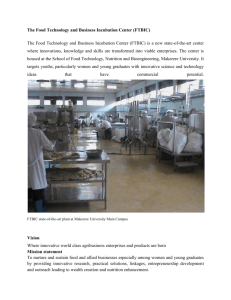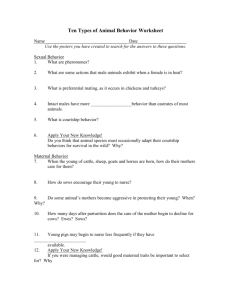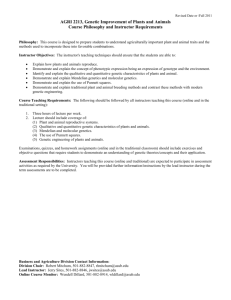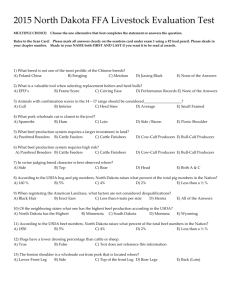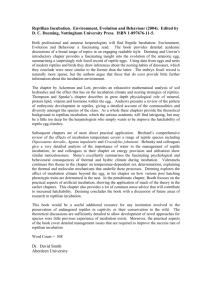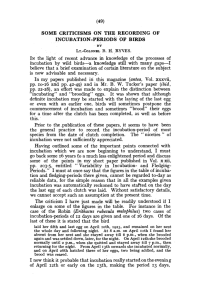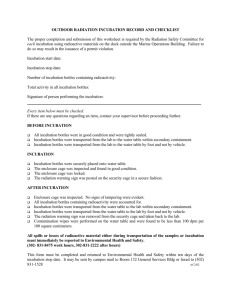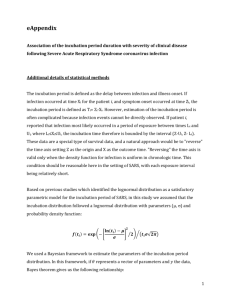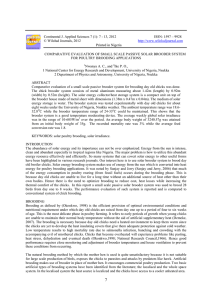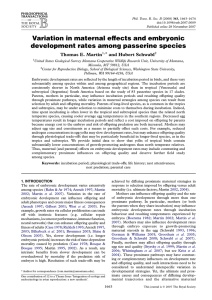Incubation and Brooding
advertisement
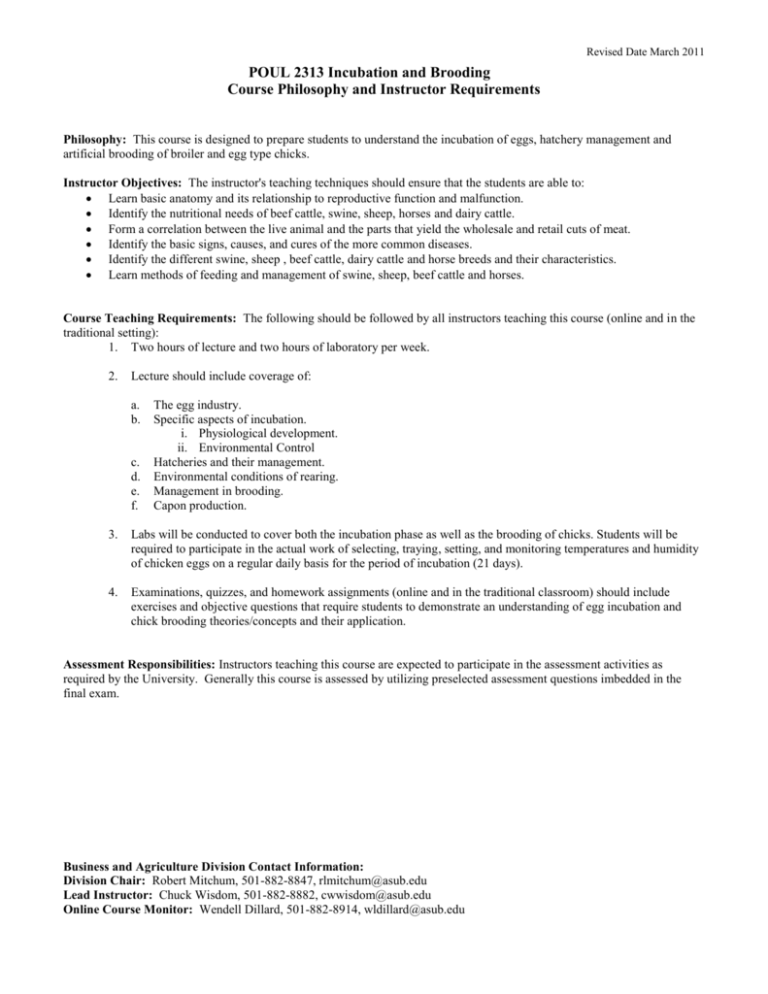
Revised Date March 2011 POUL 2313 Incubation and Brooding Course Philosophy and Instructor Requirements Philosophy: This course is designed to prepare students to understand the incubation of eggs, hatchery management and artificial brooding of broiler and egg type chicks. Instructor Objectives: The instructor's teaching techniques should ensure that the students are able to: Learn basic anatomy and its relationship to reproductive function and malfunction. Identify the nutritional needs of beef cattle, swine, sheep, horses and dairy cattle. Form a correlation between the live animal and the parts that yield the wholesale and retail cuts of meat. Identify the basic signs, causes, and cures of the more common diseases. Identify the different swine, sheep , beef cattle, dairy cattle and horse breeds and their characteristics. Learn methods of feeding and management of swine, sheep, beef cattle and horses. Course Teaching Requirements: The following should be followed by all instructors teaching this course (online and in the traditional setting): 1. Two hours of lecture and two hours of laboratory per week. 2. Lecture should include coverage of: a. b. c. d. e. f. The egg industry. Specific aspects of incubation. i. Physiological development. ii. Environmental Control Hatcheries and their management. Environmental conditions of rearing. Management in brooding. Capon production. 3. Labs will be conducted to cover both the incubation phase as well as the brooding of chicks. Students will be required to participate in the actual work of selecting, traying, setting, and monitoring temperatures and humidity of chicken eggs on a regular daily basis for the period of incubation (21 days). 4. Examinations, quizzes, and homework assignments (online and in the traditional classroom) should include exercises and objective questions that require students to demonstrate an understanding of egg incubation and chick brooding theories/concepts and their application. Assessment Responsibilities: Instructors teaching this course are expected to participate in the assessment activities as required by the University. Generally this course is assessed by utilizing preselected assessment questions imbedded in the final exam. Business and Agriculture Division Contact Information: Division Chair: Robert Mitchum, 501-882-8847, rlmitchum@asub.edu Lead Instructor: Chuck Wisdom, 501-882-8882, cwwisdom@asub.edu Online Course Monitor: Wendell Dillard, 501-882-8914, wldillard@asub.edu
